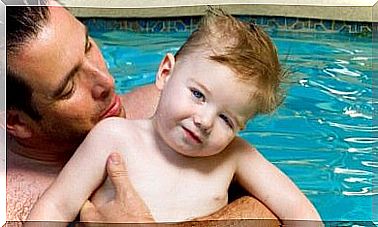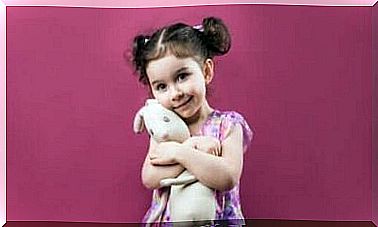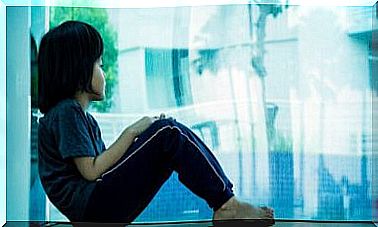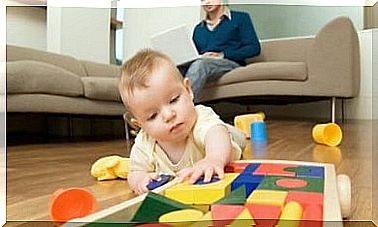Children Who Get Angry About Anything: What To Do?
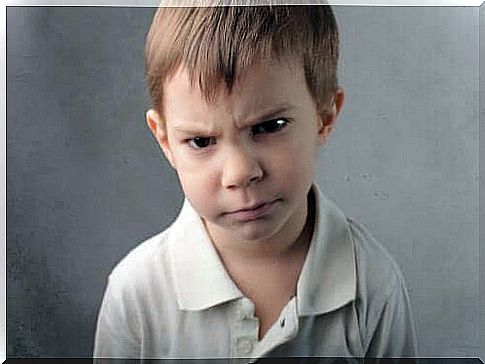
Children who get angry about anything need special attention and care, because hidden inner ailments may be hiding behind this reaction. In this article we will develop just this topic.
Anger
Anger is a fundamental emotion of the human being that arises on the occasion of a feeling of discomfort that occurs in certain circumstances. Children are dominated by their emotions and all their manifestations are experienced with great intensity. In the case of anger, there is nothing wrong with them feeling this emotion. The problem arises when the behavior that generates this anger is harmful or becomes generalized.
Children who get angry about anything
If we stop to observe carefully, we will be able to meet the cause that generated this reaction in the moments that precede it. An unexpected reaction, an unmet need, a caress or attention not received or offered to someone else … Any of these attitudes can be the occasion that triggers a new reaction of anger in the child.
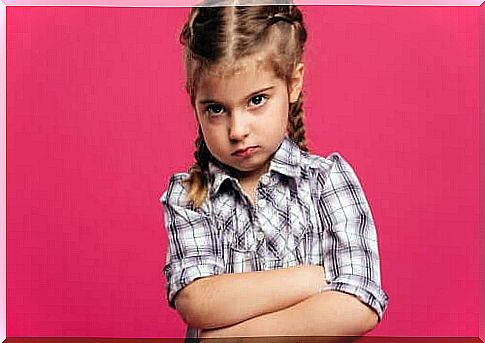
It is very important to pay special attention to these cases, because anger that goes on for this long is neither normal nor healthy. In these cases, it is important that we start, alone or with the help of a professional, a process of analyzing the child’s personal situation, looking for the aspects that can generate this frustrating reaction.
Causes that can lead a child to be continually angry
There are several possible causes that can trigger this behavior:
- A temporary stressful situation : the birth of a brother, a divorce, entry to school, exams, etc.
- A regular (and very often normalized) situation of physical or psychological abuse. These experiences provoke two responses in children: learned vulnerability or aggression. In the latter case, children externalize their anger with people who harm them and can go so far as to generalize this reaction to any situation they perceive as a threat.
- Situations of abuse or stress that the mother experienced during pregnancy or in the first months of breastfeeding. This experience causes in children a reaction of emotional numbness and an automatic response of distrust and aggression in the face of possible hostile situations.
- A familiar response pattern based on frustration and anger. Children learn by imitation, adopt the familiar response pattern and generalize it to situations that cause them discomfort.
- Others.
It is vitally important for the child to find out what are the reasons for his anger responses and to act accordingly to change the situation.
How can we help children who get angry?
To intervene in these cases, it is recommended that the various areas involved in the child’s life (mainly family and school) activate in a coordinated manner a series of responses that accompany the child towards a satisfactory resolution of his problem. The main recommendations are as follows:

- Adopt a respectful and calm attitude. Show him, with your example, a new alternative answer. Reacting to an episode of anger with other anger only reinforces the child’s initial response.
- Be interested in the child, his emotions and his personal interpretation of the situation. In this way we will be able to understand his conduct a little better and thus offer him emotional support, the absence of which, on many occasions, is the main cause of these behaviors.
- Offer and encourage him to find healthier and more respectful response alternatives : relaxation and breathing techniques, the choice of objects on which he can vent his anger, the telling of stories that address the problem, etc.
- Clarify what the limits are: he can express his anger without attacking anyone or destroying anything.
- Promote his emotional self-awareness : when the child is able to react without getting angry, it is important to reinforce his new behavior and suggest that he observe the way he feels, comparing it with the feelings he feels when he gets angry.
- Observe which situations generate the reaction, so that you can avoid them or, if they occur, offer them agreed alternatives. Gradually, the child will internalize the new responses.
- Encourage his empathy. In cases where children discharge their anger through aggression, it is important to work with them to ensure that they understand how the person being attacked feels (“How do you think X feels now?”, “Do you feel well seeing him like this? ”, etc.).
Conclusion
Intervening in cases where children get angry about anything is a fundamental issue, both to facilitate the process of adaptation of the child to his environment and the tranquility of his family and teachers and to avoid bigger problems in the long term due to a lack of social and emotional adaptation.
Doing so will provide children with healthier resources to manage their emotions and satisfactorily resolve any problems that may arise in their lifetime. In the face of frustration, anger will cease to be their automatic response and their mental health will benefit greatly.
